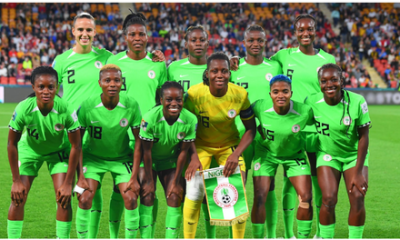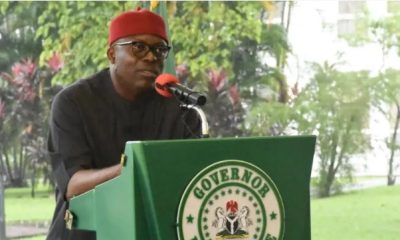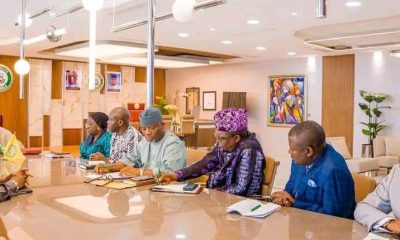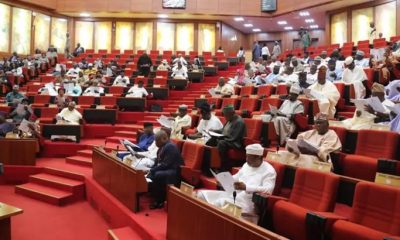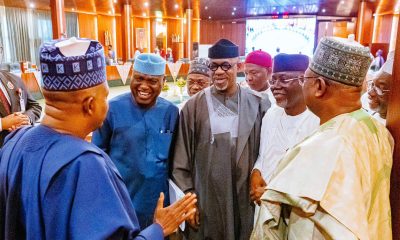Minister of Communications, Innovation and Digital Economy, Bosun Tijani, has addressed the recent controversy surrounding the sale of National Identity Number (NIN) slips for N100.
Tijani’s address follows a recent report by Paradigm Initiative that reveals that several unauthorised websites are selling sensitive personal and financial data of Nigerians for as little as N100.
These include personal data such as the National Identity Number (NIN), Bank Verification Number (BVN), virtual NIN, Driving License, International Passport, Company details, Tax Identification Number (TIN), Permanent Voter’s Card (PVC) and Phone Numbers.
Meanwhile, Tijani, in a statement on Wednesday, revealed that the Ministry of Interior, which supervises the National Identity Management Commission (NIMC), is investigating the matter.
He disclosed that the Nigerian Data Protection Commission (NDPC), under their supervision, has created data compliance mechanisms for all Ministries, Departments, and Agencies (MDAs) and is conducting a thorough investigation into the alleged breach.
Tijani also added proactive steps taken to strengthen technology applications in government, including the release of a whitepaper on digital public infrastructure and data exchange.
He added that since the release of that document, the ministry has initiated various workshops and initiatives aimed at enhancing cybersecurity and data protection across MDAs.
Tijani also disclosed that the ministry has also submitted a request for a Presidential declaration to enable them to align all MDAs behind our goal to implement a data exchange system in Nigeria.
The Full statement
ON NIN SLIPS BEING PURCHASED FOR N100
“First, I have engaged my colleague, the Minister of Interior, who supervises the National Identity Management Commission (NIMC) and I am aware that his ministry and the agency are on top of the matter.
“Second, the @ndpcngr, a year-old agency under my supervision as minister, has over the last few months created data compliance mechanisms for all MDAs and has since started a thorough investigation as to the circumstances surrounding this alleged breach.
“Having established that, I do believe that it is important to share the proactive steps I have taken upon appointment to help strengthen technology application in government, despite the historical siloed approach to procurement and development.
“For context, in October 2023, a few weeks after my appointment, I released a whitepaper (which you can find here – https://b.link/NigeriaDPI), elucidating my position on technology application within the public service and our proposed approach to leveraging existing investment in technology to accelerate economic prosperity through improved government processes.
“While some may not have recognised the relevance of that publication, it has shaped our approach and activities towards strengthening the use of technology in government while protecting the nation and our citizens.
“The very last paragraph of the whitepaper speaks clearly to how our approach will address and mitigate against issues around data breaches and make our systems secure.
“Since the release of that document, we have initiated the following:
⁃ Presentation to kick off an alignment with all permanent secretaries highlighting the importance of a structured Digital Public Infrastructure (DPI) approach and the need for Data Exchange across MDAs to strengthen Nigeria’s cybersecurity oversight for critical DPI
⁃ A 2-day workshop with Directors of ICT across all MDAs to enlighten and initiate a plan to strengthen DPI in Nigeria
⁃ Launched the #DevsInGovernment – a community of practice for all civil servants responsible for technology within the government which serves as a platform for enlightening and securing buy-in across the ICT cadre.
⁃ Launched the Responsible Data Management Course for Civil Servants (a partnership between the NDPC & Datadotorg) to improve on data handling and protection across government institutions.
⁃ Workshop with the Centre for Digital Public Infrastructure, to assess the status quo and agree on an implementation roadmap for DPI in Nigeria.
⁃ Conducted deep dives and knowledge exchange workshops on DPI and data exchange with Finland & Estonia as part of the design process for our Data Exchange System.
“Finally, we have submitted a request for a Presidential declaration to enable us align all MDAs behind our goal to implement a data exchange system in Nigeria.
“We anticipate that by the end of the year, the initial pilot of the system should be in place and cover a minimum of 5 MDAs with oversight for supporting Nigerians through critical “life events.”
“I share this update to encourage Civil Society Organisations and those interested, to read the Whitepaper and engage with us as we strengthen our DPI.”



